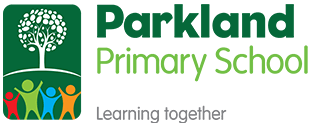PSHE and British Values Curriculum
PSHE Curriculum- Intent
A high quality PSHE curriculum aims to foster the notions of responsibility and empowerment, to promote a sense of achievement and to enhance self-confidence. PSHE education is guided by a range of values:
- Honesty
- Kindness
- Trust
- Responsibility
- Friendship
- Self-control
- Empathy
- Respect
- Tolerance
- Understanding
Aims of the PSHE Curriculum are to:
Produce young people who are thoughtful and responsible, who are able to lead safe, healthy and fulfilling lives
Give our young people the knowledge, skills and resources that support emotional resilience, self-esteem, healthy relationships, rights and responsibilities and sex education.
Help young people become independent and resilient citizens who are able to make a positive contribution to society.
Develop awareness of community involvement and moral responsibility.
Give children opportunities to make informed choices, form their own opinions and express their views.
Improve pupils’ key skills in communication and enquiry.
At Parkland Primary School, all staff have a role in the Personal Social Health and Economic Education of the pupils as well as Citizenship. They are best placed to build up the self-esteem of the pupils and develop their skills by giving them responsibility. Teachers encourage pupils to give their best and help them learn how to work with others effectively. PSHE and citizenship are taught through a mixture of strategies.
Primarily at Parkland Primary School, PSHE (Personal, Social, Health and Economic Education) is a planned programme of learning where the children acquire the knowledge, understanding and skills they need to keep themselves healthy and safe. PSHE provides the children with the building blocks necessary in order that they develop healthy, respectful relationships, focusing on family and friendships, in all contexts, including online. Our programme, which has been adapted by staff to suit the needs of our pupils, is based on pupil voice, teacher reflections, national guidance (produced by the PSHE Association) and statutory RSE requirements. As such it addresses the statutory requirements that are taught within the subject.
A cross curricular approach is also harnessed, where links are made to PSHE and citizenship through a thematic unit. For example, children may be asked to consider the morality of the behaviour of a historical figure or the ethics of particular environmental issues.
Implementation
Teachers plan PSHE using the learning journey planning format. PSHE is planned from progression maps aligned to national guidance produced by the PSHE Association and statutory RSE requirements. Lessons are designed to help learners to remember, in the long term, the content they have been taught and to integrate new knowledge into larger concepts.
Retrieval practice is a fundamental part of our PSHE curriculum as it is proven to strengthen memory and make it easier to retrieve the information later (Rosenshine, 2012). A short review at the start of lessons will often be used to activate prior learning which can be built upon in the following lesson.
Impact
Formative Assessment:
Teachers assess the children’s work in PSHE and citizenship by making informal judgements as they observe the children during lessons. Teachers may also use regular formative assessment in lessons through strategies such as questioning, regular retrieval practice, quizzing, independent learning tasks and assessment of work in books and feedback to assess progress.
Assessing long-term learning:
Knowledge and skills for PSHE, will be sequentially re-visited and built upon due to the coherently planned and sequenced progression mapping across the school. Teachers will assess prior learning before starting a new topic and build knowledge and skills year-on-year in line with the scheme of work taught.
We will know that our PSHE and citizenship provision is successful when…
- Children are engaged and active in their learning
- PSHE and citizenship is an integral part of a broad and balanced creative curriculum
- The skills and knowledge that the children have are age related or better
- All children demonstrate developing awareness and consideration of themselves and those around them
- All members of the school community work responsibly together.
British Values - Intent
Parkland Primary School has a duty to ‘actively promote’ the fundamental British values of democracy, the rule of law, individual liberty, and mutual respect and tolerance of those with different faiths and beliefs. At Parkland Primary School, we promote the spiritual, moral, social and cultural (SMSC) development of our pupils and through this demonstrate our commitment to fostering fundamental British values.
Implementation
Through assemblies, clear class displays, our citizenship scheme, the study of PSHE (including RSE), RE and cross curriculum learning, we have established a strong school ethos that supports effective relationships throughout the school and provides relevant activities in and beyond the classroom to ensure our pupils understand and apply British Values in their learning and social times.
It is expected that our children should understand that while different people may hold different views about what is ‘right’ and ‘wrong’, all people living in England are subject to its law. The school’s ethos, curriculum and teaching help children understand the importance of following rules and laws, the need to elect representatives and encourage pupils to regard people of all faiths, races, gender, sexual orientation and cultures with respect and tolerance.

